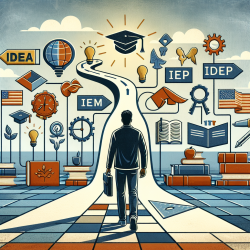For Massachusetts students receiving special education services, Secondary Transition is a crucial phase that begins when they turn 14 (or earlier, if the IEP team agrees). From age 14 until they graduate or turn 22, students on Individualized Education Programs (IEPs) receive transition services from their public school districts.
Transition services are defined by federal law (the Individuals with Disabilities Education Act, or IDEA) as a "coordinated set of activities…designed to be within a results-oriented process,…to facilitate the student's movement from school to post-school activities." These services are tailored to each student's needs, considering their strengths, preferences, and interests. The ultimate goal is to help young adults live, work, participate in the community, and pursue further education or training as independently as possible after high school.
Here are some key elements of the Secondary Transition process in Massachusetts:
- Starting Early: Transition planning starts at age 14 or earlier, depending on the IEP team's decision. This early start ensures ample time for students to explore their interests and develop necessary skills.
- Individualized Planning: Transition services are customized to each student's unique needs. This personalization takes into account their strengths, preferences, and interests, ensuring a meaningful and effective transition process.
- Postsecondary Goals: The IEP must include measurable postsecondary goals that are updated annually. These goals are based on age-appropriate transition assessments and aim to prepare students for life after high school.
- Comprehensive Services: Transition services encompass various aspects, including courses of study and annual IEP goals related to the student's transition needs. These services aim to equip students with the skills and knowledge required for their postsecondary aspirations.
- Student Involvement: Students are invited to participate in their IEP team meetings where transition services are discussed. This involvement ensures that their voices are heard and their preferences are considered.
- Agency Collaboration: When appropriate, representatives from participating agencies are invited to the IEP team meetings, provided there is prior consent from the parent or the student who has reached the age of majority. This collaboration enhances the support network available to the student.
Ensuring a smooth and effective transition for students with IEPs requires a collaborative effort from educators, parents, students, and external agencies. By focusing on individualized planning and comprehensive support, we can help young adults achieve their postsecondary goals and lead fulfilling lives.
For more information, please follow this link.










